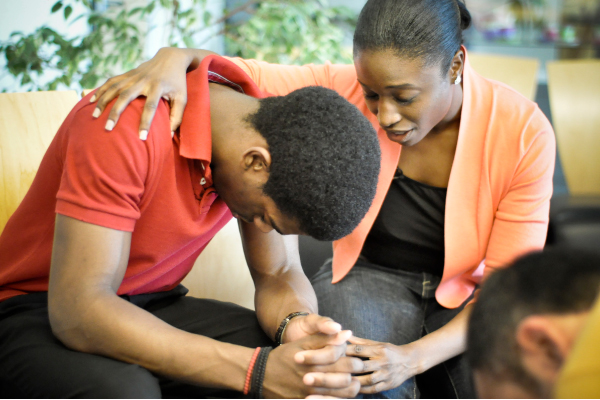Prime
Pursuing a holy dream to the end

What you need to know:
- Two cents. In Matthew 1:19, Joseph is called the “righteous man” who daily perseveres in quietly serving God and his plans. He knew that success in life is built on constant fidelity to important decisions.
The harvest is plentiful, but the workers are few. Ask the Lord of the harvest, therefore, to send out workers into His harvest.” (Luke 10:2). Following Jesus’ appeal, the Church dedicates the fourth Sunday of Easter, also known as the Good Shepherd Sunday, to pray for vocations in priesthood, religious and international associations of the faithful; following John 10.
Pope Francis has declared that this year’s vocations Sunday, be observed within the framework of the year of St. Joseph, which is running from December 8, 2020 to December 8, 2021. He proclaimed it to mark the 150th anniversary of the declaration of Saint Joseph as Patron of the Universal Church, by Pope Pius IX. The mission of the Church was, then, being jeopardised by Satanic influences. In Joseph, the Pope saw a man who goes unnoticed, a daily, discreet and hidden presence, an intercessor, a support and a guide in times of trouble. This year’s theme is: “Saint Joseph: The Dream of Vocation.”
God spoke to Joseph in four dreams. In Matthew 1:20-21, Joseph is told not be afraid to take Mary as his wife, because she has conceived by the Holy Spirit. In Matthew 2:13, Joseph is warned to leave Bethlehem and flee to Egypt, because King Herod wanted to kill Jesus. In Matthew 2:19-20, while in Egypt, Joseph is told that it is safe to go back to Israel. In Matthew 2:22, Joseph is warned in a dream, to depart for the region of Galilee instead of Judea.
There can be no faith without risk. Calls from God are not easy to accept. Joseph had to change his plans and take a risk, sacrificing his own plans in order to follow the mysterious designs of God, whom he trusted completely. Only by abandoning ourselves confidently to grace, setting aside our own programmes and comforts, can we truly say “yes” to God.
Be guided
Saint Joseph let himself be guided by his dreams without hesitation, because he had an “inner ear” to recognise God’s voice. This applies also to our calling: God does not like to reveal himself in a spectacular way, pressuring our freedom. He conveys his plans to us with gentleness. In this way, as he did with Saint Joseph, he sets before us profound and unexpected horizons. We may, here, recall the vocation of Samuel in 1 Samuel 3:4-20. Saint Joseph is model for the vocation of service. The Gospels show how Joseph lived entirely for others and never for himself. Basing on his ability to love unreservedly, he is called the most chaste spouse. By freeing love from all possessiveness, he became open to an even more fruitful service. His service and sacrifices were only possible, however, because they were sustained by a greater love; the love of God. Vocations to marriage, priesthood, religious and international associations of the faithful, likewise, require this kind of maturity.
Saint Joseph, the protector of Jesus and of the Church, is the protector of vocations. He wasted no time worrying over things he could not control, in order to give full attention to those entrusted to his care. Every Christian vocation bids us to refuse pursuing our ambitions or indulging in our illusions, but instead care for what God has entrusted to us through the Church.
Fidelity is the third characteristic of Saint Joseph’s daily life and our Christian vocation. In Matthew 1:19, Joseph is called the “righteous man” who daily perseveres in quietly serving God and his plans. He knew that success in life is built on constant fidelity to important decisions. This fidelity is the secret of joy.
Society needs to be re-evangelised. We need to pray for more dedicated vocations, after the example of St Joseph, and financially support their formation.





